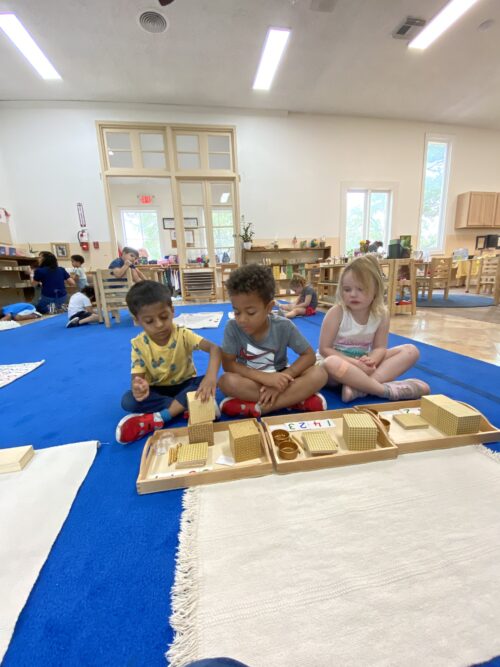
Let’s begin with the absolute genius of Dr. Maria Montessori and her son Mario who developed the Montessori math materials.
Over the years, there has been a consistent message from adults, either parents or educators taking the Montessori math component of the Montessori Teacher Education formal training.
“I wish I had Montessori Math when I was a student”
Traditional schools offer mathematics in an abstract format with the, group of children moving through the prescribed curriculum together. The MSOSV Montessori Guides present math with concrete, manipulative material. The student is presented the materials, as he or she is developmentally ready.
“In our work, therefore, we have given a name to this part of the mind, which is built up by exactitude, we call it the ‘mathematical mind.’”
– Dr. Maria Montessori
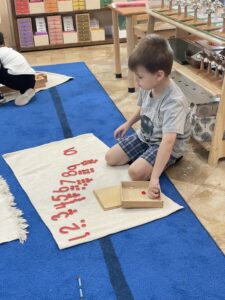 The Montessori mathematics are taught in a sequence starting at age 3:
The Montessori mathematics are taught in a sequence starting at age 3:
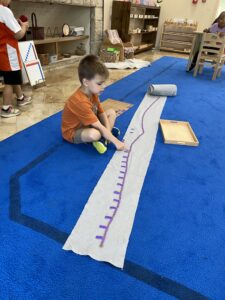
At MSOSV, we maintain mixed-age classrooms. This means that any child who is ready to receive a new, more advanced math lesson, will have the opportunity to do so. This applies to any of the materials listed above. It is not uncommon for an older student to work alongside a younger student showing what they know. Teaching a friend to do a new lesson is a reinforcement of the lesson itself.
There are, however, a few exceptions. We reserve some of the more abstract concepts for the kindergarten year. These lessons are taught in small groups with individual practice to follow: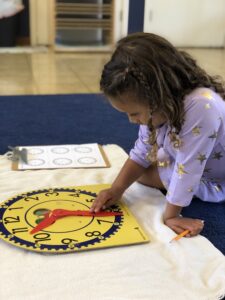
Advantages the MSOSV kindergarten students have upon graduation:
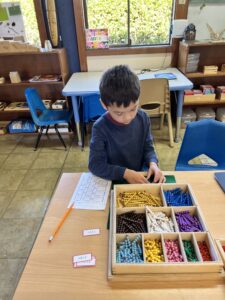
If you missed any of the earlier Kindergarten posts in this series, you can find them all here!